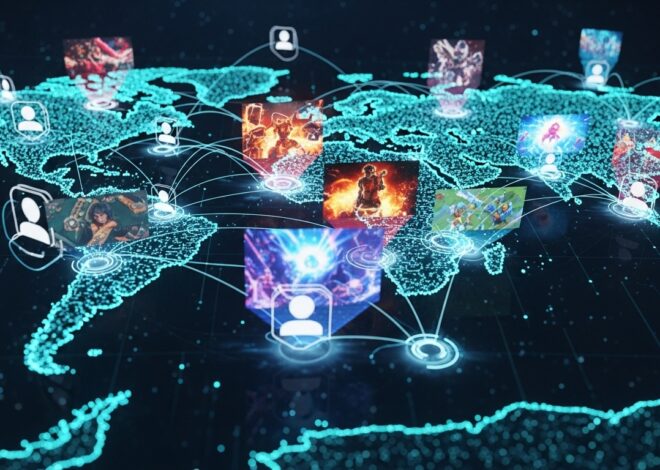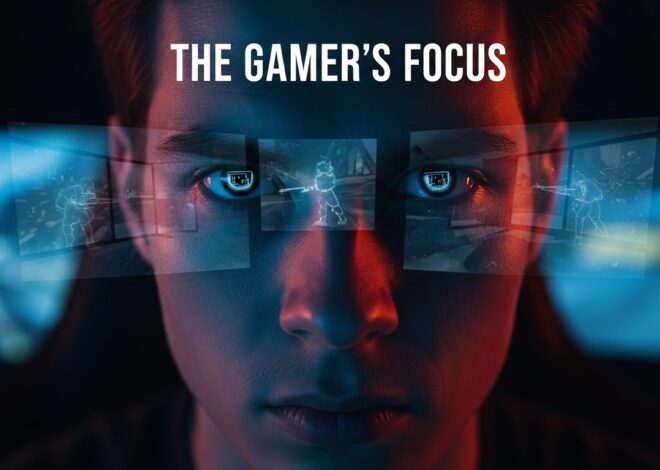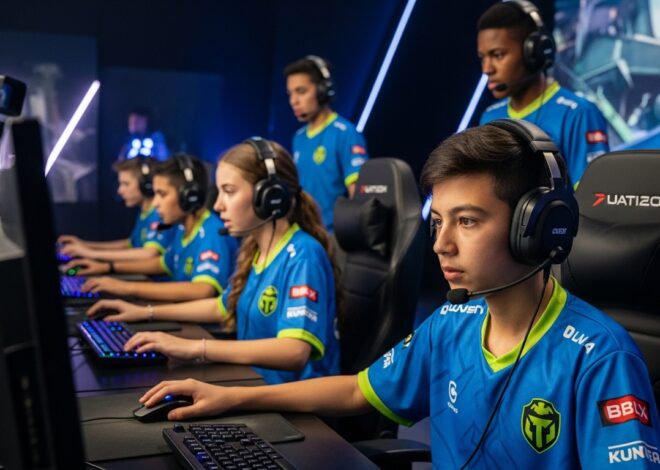
How Esports Will Shape the Future of Entertainment
Introduction
Esports has evolved from niche gaming competitions into a global phenomenon that rivals traditional entertainment industries in popularity, revenue, and cultural impact. With millions of viewers worldwide, high-profile tournaments, and professional players achieving celebrity status, esports is redefining what it means to entertain in the 21st century.
The influence of esports extends far beyond gaming. It intersects with streaming platforms, social media, content creation, music, fashion, and even traditional sports. The industry’s rapid growth and innovative approach to audience engagement have set the stage for a new era in entertainment — one where digital experiences, interactivity, and global connectivity are central.
This blog explores how esports is shaping the future of entertainment, examining its influence on media consumption, storytelling, fan engagement, cross-industry collaborations, and emerging technologies.
The Rise of Esports as Mainstream Entertainment
Esports has moved from basements and small LAN cafes to massive arenas with live audiences, high-definition broadcasts, and professional production teams. Events like The International for Dota 2, the League of Legends World Championship, and Valorant Champions Tour draw millions of viewers online and thousands in person.
This shift marks a transformation in how audiences consume entertainment. Traditional sports and television networks have taken notice, incorporating esports coverage into mainstream channels and collaborating with gaming organizations. Platforms like Twitch, YouTube Gaming, and Trovo provide real-time, interactive viewing experiences, allowing audiences to participate in ways that traditional media cannot replicate.
Esports’ rise demonstrates that entertainment no longer needs to be passive. Audiences expect immersion, interaction, and personalization, setting a precedent for future entertainment formats.
Interactivity Redefining Audience Engagement
One of esports’ greatest contributions to entertainment is the emphasis on interactivity. Unlike movies or traditional sports, where viewers observe from a distance, esports allows fans to engage directly with the content. Features like live chats, polls, in-game events, and real-time statistics enable viewers to feel part of the action.
Interactive entertainment is not limited to watching gameplay. Fans can participate in fantasy esports leagues, virtual meet-and-greets with players, and even in-game decisions that affect competitive matches. This level of engagement creates a sense of community and personal investment that traditional media struggles to achieve.
The future of entertainment will increasingly prioritize interactivity, driven by the standards set by esports. Movies, television, and live events will adopt gamified elements, offering audiences ways to shape experiences rather than passively consume them.
The Integration of Streaming and Digital Media
Streaming platforms are central to esports’ growth and its influence on entertainment. Twitch pioneered real-time, interactive broadcasts, while YouTube Gaming, Facebook Gaming, and other platforms expanded the reach of esports content globally.
The fusion of esports with streaming has created a new form of digital media where personality-driven content matters as much as competitive skill. Professional players, casters, and influencers produce content that entertains, educates, and builds communities. Esports’ influence encourages traditional entertainment industries to embrace streaming as a primary distribution channel, bypassing the limitations of conventional media.
Furthermore, esports demonstrates that long-form, niche, and highly specialized content can succeed in the digital age. Audiences now expect on-demand access, multi-platform interaction, and immersive experiences, setting new benchmarks for entertainment consumption.
Cross-Industry Collaborations
Esports is increasingly collaborating with music, fashion, and film, blending entertainment sectors in innovative ways. For instance, virtual concerts in Fortnite featuring top artists have drawn tens of millions of viewers, proving that gaming platforms can be entertainment hubs beyond traditional competition.
Fashion brands collaborate with esports teams and streamers to release merchandise, while movies and franchises launch in-game events that integrate storytelling with gameplay. These cross-industry partnerships demonstrate that esports is not a standalone phenomenon but a versatile platform capable of hosting multifaceted entertainment experiences.
The entertainment industry is likely to adopt esports-style integration, using gaming mechanics, interactivity, and cross-platform storytelling to engage younger, tech-savvy audiences.
The Globalization of Entertainment
Esports is inherently global. Players, fans, and organizations transcend geographic boundaries, connecting diverse cultures through shared gaming experiences. Unlike traditional entertainment, which often has localized appeal, esports thrives on international collaboration and competition.
Global tournaments bring audiences together from Asia, Europe, North America, South America, and beyond. Multilingual streams, regional leagues, and international sponsorships ensure that content resonates across borders. This level of globalization sets a model for future entertainment, where cross-cultural appeal and connectivity are central to success.
Entertainment companies are learning from esports how to reach international audiences effectively, leveraging digital distribution, real-time engagement, and community-building strategies.
Technological Innovation Driving Immersive Experiences
Esports is closely tied to technological innovation. Advancements in virtual reality (VR), augmented reality (AR), artificial intelligence (AI), and high-speed streaming have made competitive gaming more immersive and interactive.
For example, AR overlays can display real-time stats during live broadcasts, while VR platforms allow fans to “enter” tournaments from the comfort of their homes. AI-driven analytics enhance both gameplay and viewer experiences, offering insights into strategy and performance.
These technologies, pioneered or refined in esports, are influencing broader entertainment. VR concerts, interactive movies, and AI-generated narratives are becoming more common, blurring the line between gaming and mainstream entertainment.
Esports and Storytelling
Esports has redefined storytelling in entertainment. While traditional media relies on scripted narratives, esports delivers unscripted drama, rivalries, and personal stories that captivate audiences naturally.
Viewers follow players’ journeys, team dynamics, and tournament arcs as they unfold in real time. Legendary moments, upsets, and comeback victories provide compelling narratives that rival films and TV shows.
Future entertainment will increasingly borrow from esports’ storytelling techniques — combining real-time events, audience participation, and character-driven narratives to create emotionally engaging experiences.
The Influence on Traditional Sports and Events
Esports is also shaping traditional sports and live events. Many leagues and organizations are incorporating gaming tournaments alongside conventional competitions. Examples include FIFA eWorld Cup events, NBA 2K League tournaments, and Formula 1 esports challenges.
This crossover introduces younger audiences to traditional sports while providing esports fans with familiar competitive frameworks. Hybrid events, blending digital and physical entertainment, are becoming more common, signaling a future where interactivity, gamification, and global reach are standard features of all entertainment.
Monetization and Sponsorship Models
Esports has introduced new monetization and sponsorship strategies that are shaping the broader entertainment industry. Revenue streams include live streaming subscriptions, in-game purchases, branded merchandise, sponsorships, and advertising.
Unlike traditional entertainment, esports leverages microtransactions, virtual goods, and digital engagement to create highly personalized and interactive revenue models. This approach allows for more direct fan support and community-driven growth.
Future entertainment models are likely to adopt similar strategies, combining digital interactivity, fan participation, and tiered content access to maximize engagement and revenue simultaneously.
Inclusivity and Community Building
Esports emphasizes inclusivity and global community. Unlike many traditional entertainment mediums, esports allows individuals from all backgrounds, abilities, and geographies to compete or engage with content on equal footing.
Online communities foster fan interaction, collaboration, and support, creating a sense of belonging. This model demonstrates that entertainment can thrive when it prioritizes participation, interactivity, and social engagement. Future entertainment platforms are likely to integrate these principles, using esports as a blueprint for inclusive, global communities.
The Future of Entertainment is Interactive, Global, and Esports-Driven
Esports is not just changing gaming; it is redefining entertainment itself. Its emphasis on interactivity, community, technology, storytelling, and globalization sets new standards for how audiences engage with content.
The future of entertainment will likely incorporate elements pioneered by esports:
- Real-time interactivity and immersive experiences.
- Cross-industry collaborations between music, film, and gaming.
- Global reach with culturally adaptable content.
- AI and VR integration for enhanced engagement.
- Fan-driven monetization and community-building strategies.
Esports demonstrates that entertainment is no longer a one-way street. Audiences expect to participate, influence outcomes, and experience content in dynamic ways. Industries that embrace these principles will thrive in the next generation of entertainment.
Conclusion
Esports has emerged as a trailblazer in the global entertainment industry. By combining competition, storytelling, interactivity, and technology, it has set new standards for what audiences expect from modern entertainment.
The industry’s influence extends beyond gaming, inspiring traditional media, sports, music, and live events to rethink engagement, community, and monetization. As esports continues to grow, it will shape the future of entertainment — creating experiences that are interactive, global, immersive, and endlessly engaging.
The digital age belongs to those who can adapt, innovate, and connect audiences in new ways, and esports has proven it is leading the charge.


